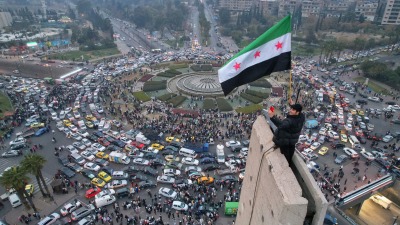Qatar Leads $7 Billion Energy Project in Syria with U.S. and German Firms

Sources have informed Reuters that negotiations are underway between Syrian authorities and American firm General Electric Vernova, along with German company Siemens Energy, regarding the supply of gas turbines as part of a $7 billion energy reconstruction project.
This ambitious initiative aims to rebuild Syrian energy infrastructure devastated by years of conflict and is led by Qatari firm Power International Holding.
The project includes the construction of four gas power plants with a total capacity of 4,000 megawatts, as well as a solar plant with a capacity of 1,000 megawatts. There is also potential for expanding cooperation to enhance Syria's critical electrical infrastructure.
In this context, Siemens Energy has expressed its commitment to support energy supply stability. The company stated, "Siemens Energy has confirmed its readiness to provide technical expertise to ensure energy supply stability, although no contracts have been signed yet."
As of now, financial details regarding the turbine supply contracts have not been disclosed, and no date has been set for final agreement signatures.
These negotiations are taking place alongside announcements from other U.S. companies, including Baker Hughes, Hunt Energy, and Argent LNG, regarding investment plans in Syria's oil and gas sectors.
The success of these discussions could mark a significant milestone, potentially allowing Siemens Energy and General Electric Vernova to become the first Western companies to contribute to the reconstruction of Syria's energy sector, particularly following the easing of U.S. sanctions on Damascus earlier this year.
Syria is currently facing a severe energy crisis due to a civil war that has persisted for 14 years. Data indicates that the country's natural gas production has plummeted from 8.7 billion cubic meters in 2011 to approximately 3 billion cubic meters in 2023. Furthermore, energy infrastructure has suffered extensive damage, leading the country to increasingly rely on gas imports from Azerbaijan and Qatar to meet local needs.
